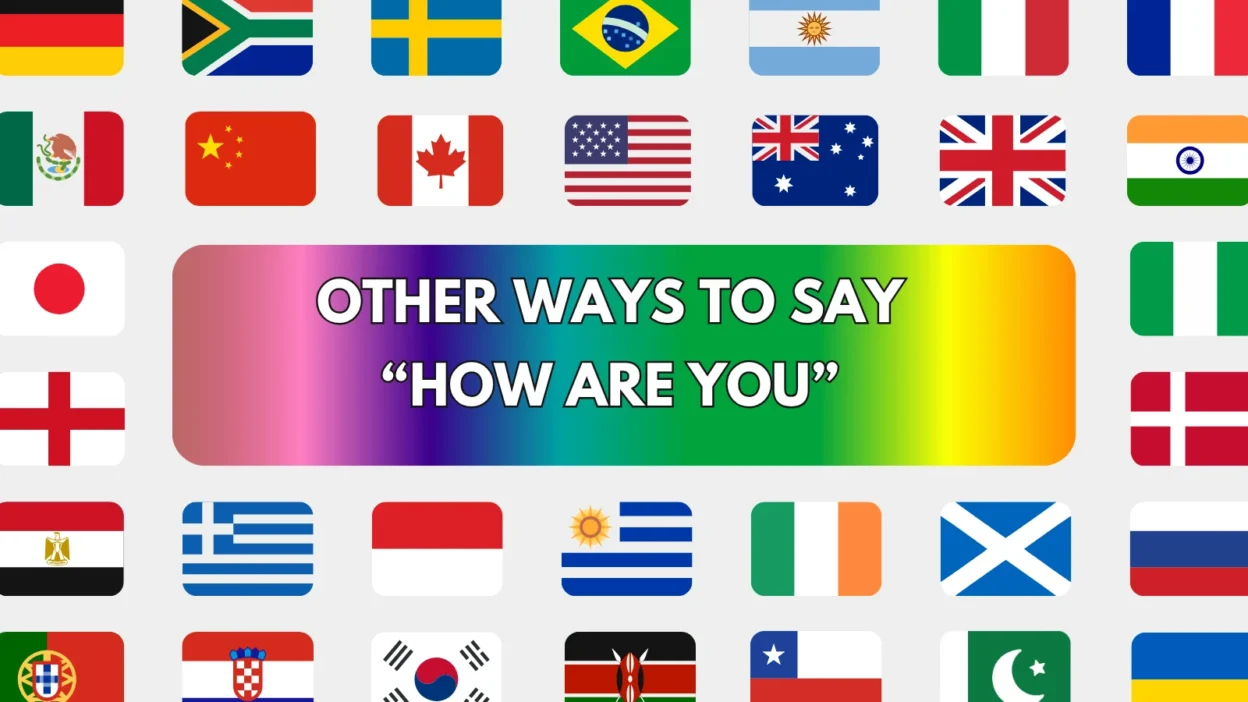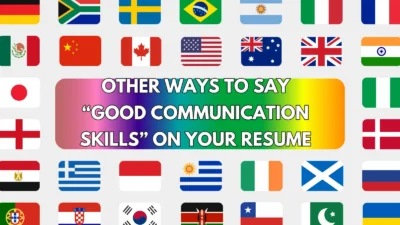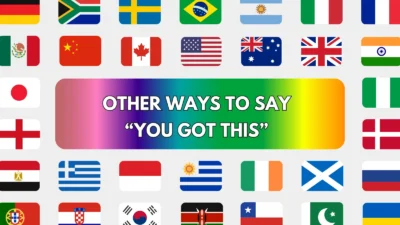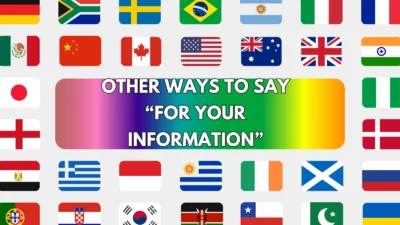The phrase “How are you?” is one of the most common greetings in English. It opens conversations, shows politeness, and expresses care. However, using the same phrase repeatedly can sound routine or impersonal. Whether you’re speaking with friends, colleagues, or new acquaintances, using creative alternatives can make your interactions feel more genuine and engaging.
Below are 25 natural and thoughtful alternatives to “How are you?” — each with meaning, explanation, example, best usage, and tone to help you express yourself better in any situation.
1. How’s everything?
Meaning: A friendly check-in about someone’s overall life or situation.
Example: Hey, how’s everything going at work these days?
Best Use: Everyday casual conversations.
Tone: Warm, conversational.
2. How have you been?
Meaning: Asks how someone has been since you last spoke.
Example: It’s been ages! How have you been?
Best Use: When reconnecting after a while.
Tone: Friendly, caring.
3. What’s new?
Meaning: Invites the person to share updates or recent news.
Example: Hi, what’s new with you lately?
Best Use: Informal chats or friendly greetings.
Tone: Casual, upbeat.
4. How’s life treating you?
Meaning: Asks about how things in general are going for someone.
Example: How’s life treating you these days?
Best Use: With friends or acquaintances.
Tone: Warm, conversational.
5. How are things?
Meaning: General question about someone’s current state or situation.
Example: Hey! How are things at your new job?
Best Use: Common daily greeting.
Tone: Friendly, relaxed.
6. What’s going on?
Meaning: Asks what’s happening in someone’s life right now.
Example: Hey there! What’s going on with you?
Best Use: Informal chats.
Tone: Casual, energetic.
7. How’s your day going?
Meaning: A simple, thoughtful way to ask about someone’s current day.
Example: Hi! How’s your day going so far?
Best Use: Polite small talk or friendly interactions.
Tone: Kind, conversational.
8. How’s everything with you?
Meaning: A slightly more personal way to ask about overall well-being.
Example: How’s everything with you and your family?
Best Use: Warm, personal conversations.
Tone: Caring, gentle.
9. What have you been up to?
Meaning: Asks what someone has been doing recently.
Example: Hey, long time no see! What have you been up to?
Best Use: When catching up after a gap.
Tone: Friendly, informal.
10. How’s it going?
Meaning: Informal version of “How are you?”
Example: Hey man, how’s it going?
Best Use: Everyday greetings.
Tone: Relaxed, casual.
11. How are you feeling?
Meaning: Specifically asks about emotional or physical state.
Example: You looked tired yesterday — how are you feeling today?
Best Use: When someone might be unwell or stressed.
Tone: Compassionate, thoughtful.
12. What’s up?
Meaning: Common slang greeting that means “what’s happening.”
Example: Yo! What’s up?
Best Use: Informal or friendly conversations.
Tone: Playful, easygoing.
13. How’s your week been?
Meaning: Asks about someone’s recent week or activities.
Example: How’s your week been so far?
Best Use: Casual check-ins, friendly talk.
Tone: Polite, kind.
14. How’s your family?
Meaning: Shows care for someone’s loved ones and personal life.
Example: How’s your family doing these days?
Best Use: With close friends or colleagues.
Tone: Warm, considerate.
15. How’s everything going on your end?
Meaning: Asks about the other person’s work, projects, or life.
Example: How’s everything going on your end with the project?
Best Use: Professional or remote work conversations.
Tone: Courteous, engaging.
16. How are you holding up?
Meaning: Shows concern when someone might be struggling.
Example: I heard about the changes at work — how are you holding up?
Best Use: Supportive or empathetic situations.
Tone: Compassionate, gentle.
17. How’s your morning going?
Meaning: Friendly inquiry about someone’s morning.
Example: Hey! How’s your morning going so far?
Best Use: Early-day greetings.
Tone: Cheerful, warm.
18. How’s work treating you?
Meaning: Asks about someone’s experience at their job.
Example: How’s work treating you lately?
Best Use: Colleagues or friends discussing career life.
Tone: Relaxed, conversational.
19. What’s happening?
Meaning: Another casual way of saying “what’s going on.”
Example: Hey dude, what’s happening?
Best Use: Informal or friendly contexts.
Tone: Lively, upbeat.
20. How’s your world?
Meaning: A creative, casual way to ask how things are going overall.
Example: Hey! How’s your world these days?
Best Use: Friendly or lighthearted talks.
Tone: Playful, kind.
21. Everything good?
Meaning: Quick and easy check-in.
Example: Hey, everything good with you?
Best Use: Fast-paced or casual chats.
Tone: Informal, caring.
22. How’s life?
Meaning: Short and broad way to ask how someone’s doing in general.
Example: Hey, how’s life treating you?
Best Use: Everyday friendly conversations.
Tone: Casual, friendly.
23. How’s it been going?
Meaning: Asks for a progress update on life or work.
Example: How’s it been going with your new job?
Best Use: Check-ins or ongoing conversations.
Tone: Neutral, polite.
24. How’s your day been so far?
Meaning: More specific version of “How are you?”
Example: How’s your day been so far — busy or chill?
Best Use: Casual small talk.
Tone: Warm, friendly.
25. How’s your mood today?
Meaning: Focuses on emotional well-being.
Example: How’s your mood today — feeling better?
Best Use: Caring or personal situations.
Tone: Empathetic, supportive.
Conclusion
“How are you?” may be a universal greeting, but adding variety makes your conversations feel more authentic, warm, and human. Whether you’re catching up with a friend, checking on a loved one, or starting a professional chat, using these alternatives shows you care beyond formality.
Try switching them up — because sometimes, a simple question asked differently can make all the difference in connecting with people.

Naz Fatima is an author at Saypadia who specializes in writing clear, relatable, and reader-friendly content about language, expressions, and modern terminology. She enjoys breaking down meanings with real-life context so readers can quickly understand and apply them. Naz’s work reflects a strong commitment to clarity, accuracy, and helping users find quick answers without confusion.




